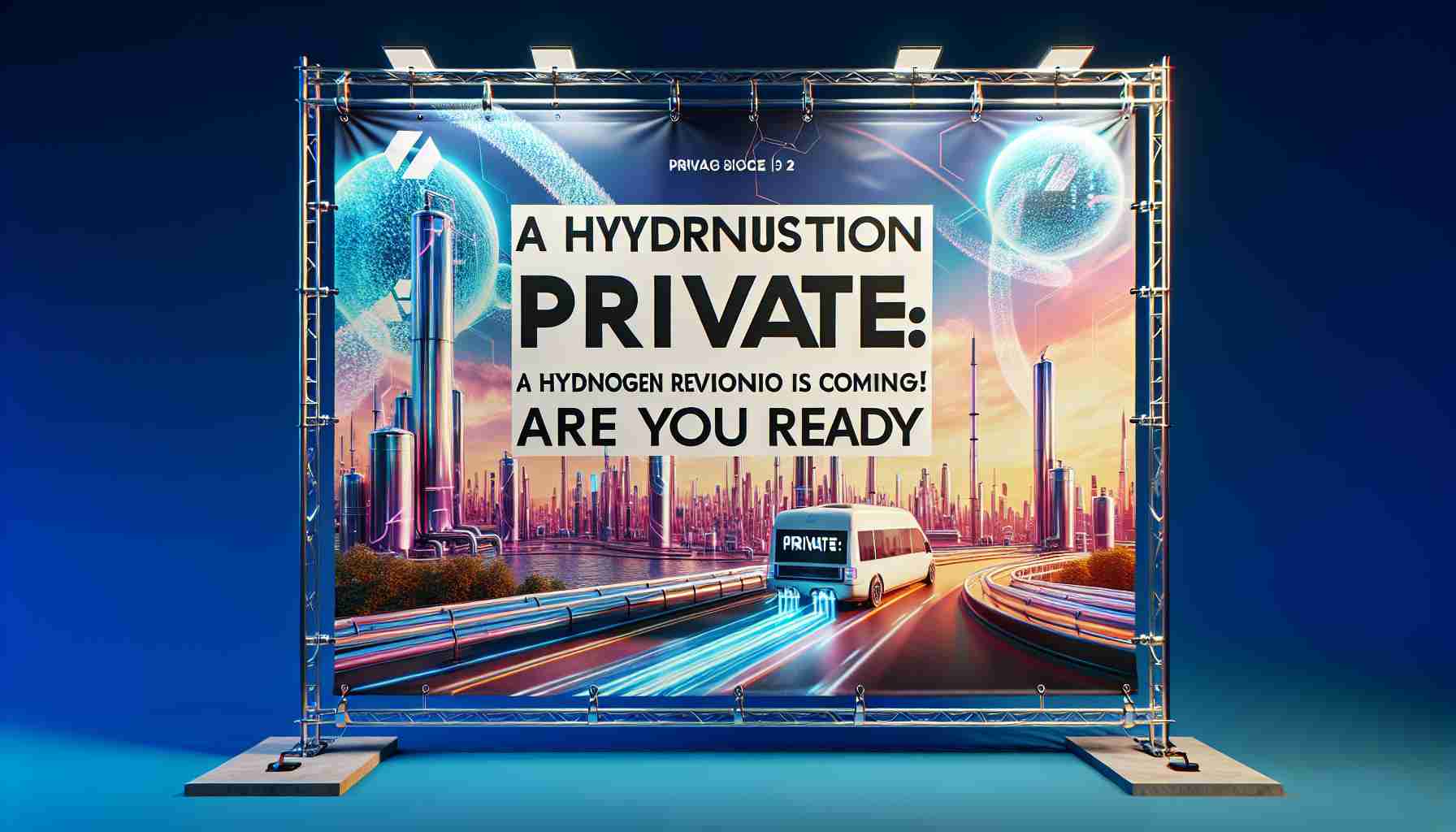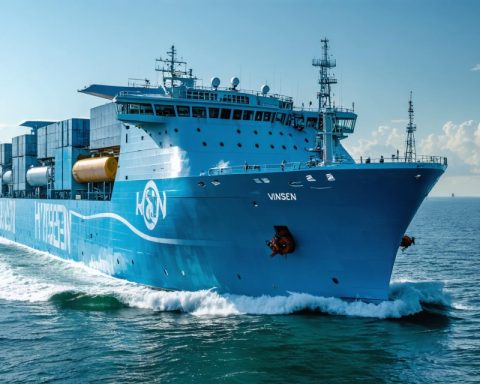Major Investment Fuels Clean Hydrogen Hub in Mid-Atlantic
A groundbreaking initiative in the Philadelphia region, known as the Mid-Atlantic Clean Hydrogen Hub (MACH2), has just secured a significant funding agreement with the U.S. Department of Energy. The hub has received an impressive $18.8 million as part of a larger federal investment totaling $750 million aimed at transforming hydrogen-powered manufacturing and transportation across Pennsylvania, New Jersey, and Delaware.
This announcement comes shortly before a presidential transition, highlighting the urgency and importance of such clean energy initiatives. MACH2 is one of seven hubs across the nation that are set to benefit from a substantial $7 billion allocation from the Bipartisan Infrastructure Law, showcasing the government’s commitment to sustainable energy solutions.
Hydrogen production is crucial for achieving the ambitious climate goal of net-zero carbon emissions by 2050. The focus is on fostering commercial-scale production of “clean hydrogen,” leveraging renewable energy sources instead of fossil fuels to minimize carbon footprints. Currently, the predominant method of hydrogen production in the U.S. contributes significantly to greenhouse gas emissions.
With this initiative, leaders believe communities can unite across various sectors and political affiliations to create a more resilient and eco-friendly economy. As the energy landscape evolves, this hub represents a pivotal step toward a sustainable future.
Broader Implications of the Mid-Atlantic Clean Hydrogen Hub
The establishment of the Mid-Atlantic Clean Hydrogen Hub (MACH2) could profoundly reshape society and the global economy. Hydrogen stands to revolutionize energy sectors and manufacturing by providing a cleaner, versatile fuel source, potentially addressing the urgent need for energy transition amidst the climate crisis. Hydrogen production using renewable energy could significantly reduce reliance on fossil fuels, leading to a more sustainable energy economy not just in the Mid-Atlantic, but across the nation and beyond.
From a cultural standpoint, the project symbolizes a shift in public perception towards clean energy. As communities rally around these initiatives, there is potential for increased civic engagement and support for sustainable practices. This could ignite a broader cultural movement prioritizing renewable energy solutions, as the public begins to recognize the roles they can play in combating climate change.
Moreover, the environmental implications are notable. Clean hydrogen production minimizes the carbon emissions that dominate current methodologies. As this hub expands, it could lead to significant reductions in greenhouse gases, fostering healthier ecosystems and contributing positively to biodiversity preservation.
Looking forward, this initiative signals a trend toward innovative energy solutions that could influence global markets and investment patterns. As vibrant hydrogen economies develop, stakeholders are likely to observe shifts in labor markets, policy-making, and international energy relations, underlining the long-term significance of MACH2 in the transition toward a sustainable future.
Transforming Tomorrow: The Mid-Atlantic Clean Hydrogen Hub Sets the Stage for Sustainable Energy
Major Investment Fuels Clean Hydrogen Hub in Mid-Atlantic
The Mid-Atlantic Clean Hydrogen Hub (MACH2) is on the cusp of a revolutionary shift in energy production and consumption with its recent funding boost of $18.8 million from the U.S. Department of Energy. This initiative is part of a broader federal commitment that aims to allocate $750 million into hydrogen technology, underscoring the government’s serious pursuit of clean energy solutions across Pennsylvania, New Jersey, and Delaware.
Features and Innovations
MACH2 is one of seven designated hydrogen hubs, benefiting from a total investment of $7 billion under the Bipartisan Infrastructure Law. The project aims to lead the charge in scaling up the production of clean hydrogen, utilizing renewable energy sources, thereby significantly reducing greenhouse gas emissions associated with traditional hydrogen production methods.
Key features of the hub include:
– Collaborative Efforts: MACH2 promotes a partnership across governmental, industrial, and academic sectors, fostering innovation in hydrogen technologies.
– Economic Development: The hub aims to stimulate job creation within the clean energy sector, attracting investments that will bolster local economies.
– Research and Development: Emphasis on R&D is critical for advancing clean hydrogen technologies and infrastructure development.
How Clean Hydrogen Works
To understand the significance of MACH2, it’s essential to grasp how clean hydrogen is produced:
1. Electrolysis: Using renewable energy (solar, wind) to split water into hydrogen and oxygen, creating a sustainable method.
2. Biomass Gasification: Converting organic materials into hydrogen.
3. Industrial Waste Utilization: Capturing and repurposing waste from industrial processes.
This strategic approach enables a move away from hydrogen production reliant on fossil fuels, which currently contributes extensively to carbon emissions in the U.S.
Pros and Cons of Clean Hydrogen
Pros:
– Reduces carbon footprint and greenhouse gas emissions.
– Supports energy independence by utilizing local renewable resources.
– Promotes economic growth and job creation in emerging technology sectors.
Cons:
– Initial development and setup costs can be high.
– Infrastructure for hydrogen distribution and storage is still underdeveloped.
– Public perception and acceptance may lag behind technological advances.
Market Analysis and Trends
The clean hydrogen market is witnessing significant evolution. As of 2023, industry projections indicate a compound annual growth rate (CAGR) of over 15% through the next decade. This trend indicates a robust shift towards hydrogen as a primary component of the future energy landscape, fueled by governmental policies and business investments.
Security Aspects and Sustainability
MACH2 also focuses on the security of hydrogen supply and the sustainability of production processes. Efforts are being made to ensure that hydrogen production is not only efficient but also minimizes environmental impact through sustainable practices. This includes the deployment of stringent safety protocols to prevent hazards associated with hydrogen storage and transport.
Future Predictions
Experts forecast that by 2030, clean hydrogen could account for up to 10% of the total U.S. energy consumption. As technologies improve and costs decrease, it is expected that hydrogen will play a central role in decarbonizing industries such as shipping, trucking, and heavy manufacturing.
As the Mid-Atlantic Clean Hydrogen Hub continues to develop, it stands as a beacon of hope for achieving the ambitious climate goals set forth for 2050, showing that collaborative efforts can yield innovative and sustainable solutions for the future.
For more information and updates on this initiative, visit Energy.gov.













